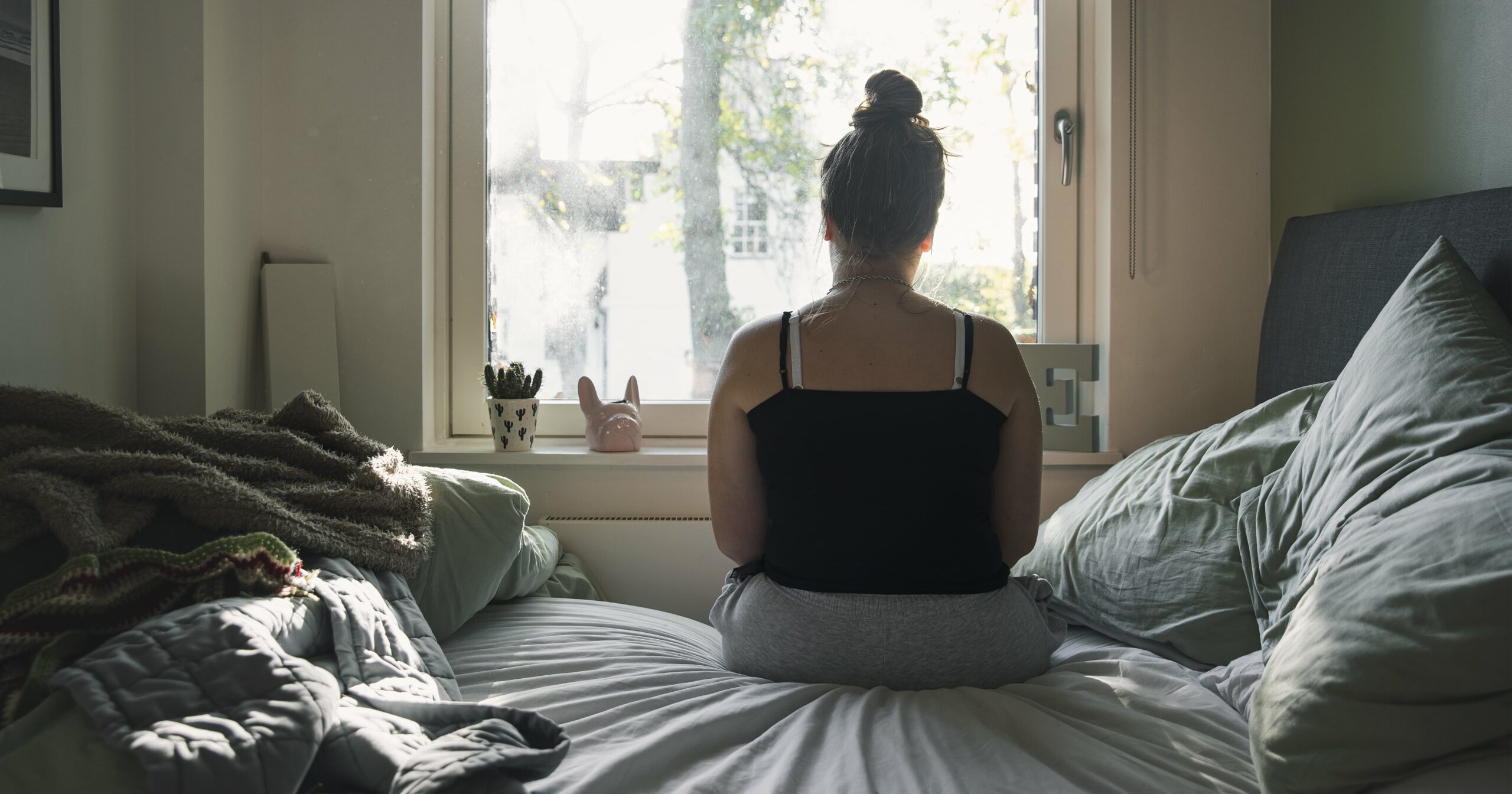One thing no one tells you about having a miscarriage is that social media quickly becomes a nightmare.
After my second loss, my algorithm was constantly serving me baby-related posts due to interactions I’d had while still pregnant. Each time I’d scroll, I’d be bombarded with shower inspiration or birth-prep tips, and there was no way to let the app know I was no longer pregnant without “liking” photos and videos covering other topics. Even still, it can take some time for the algorithm to adjust.
Desperate for relief, I decided to type the word “miscarriage” into my search bar and discovered an account called The Miscarriage Doula. While I was initially drawn in by the inspirational quotes and helpful statistics regarding pregnancy loss, what really intrigued me was the fact that the founder, Arden Cartrette, also offered counseling and group sessions for a reasonable fee.
Cartrette – who is trained to be both a birth and bereavement doula – created The Miscarriage Doula in 2020, shortly after the birth of her first living son. She realized she was still experiencing grief from her previous losses and it inspired her to connect with those who had similar experiences, particularly with first trimester loss.
“I literally sat down and was like, ‘Well, what could I have used that I didn’t have?'” Cartrette says. “I didn’t have a big support system around me and I really relied on the miscarriage community on Instagram. So, I wanted to create something that was community-based but that wasn’t impersonal – how could I make it as personable as possible?”
What began as one-on-one counseling services evolved into the addition of group sessions. For one day each week over the course of six weeks, 10 to 12 people experiencing pregnancy loss could meet via Zoom to tell their stories, discuss coping mechanisms, and share helpful information. The main rules for joining were that you must do so from a private place, away from any living children, and if you became pregnant during that time period, you’d have to share it with the moderator first before announcing it to the group.
Signing up for the recurrent loss support group truly changed my life. Here’s how my experience went.
What It’s Like to Be in a Miscarriage Grief Group
Each Thursday at 8pm, I would log on and connect with a small group of women, all of whom were scattered around the country and at different stages in their fertility journey. Some had living kids, some were still trying, some had ectopic or chemical pregnancies, and some painfully had to terminate for medical reasons. Everyone was welcome.
Each session was dedicated to a different topic, and with Cartrette as our moderator, we’d discuss everything from navigating friendships to the medical testing we’d completed. It all felt like valuable information, some of which I would have never learned from my doctor or during a panic-induced Reddit spiral. Although we were given prompts, the conversations were casual, and I found it to be so helpful that, when my first six weeks were up, I signed up for another round of sessions – and ended up having six totally different yet equally meaningful chats with another group of women who experienced pregnancy loss.
Arguably, one of the best parts about joining this grief group was that each cohort got their own WhatsApp group chat. Here, we were free to share photos of pets, vacation plans, and – most importantly – openly vent. These people who could understand what I was going through and relate to all the little things, like why a celebrity pregnancy announcement might ruin my day. They also shared personal knowledge on blood tests or invasive procedures, and I was able to do the same for them.
Even after the official sessions end, the group chats remain active, which has definitely helped me feel less alone. If a family member makes a weird comment or grief hits me unexpectedly, I know there’s a safe place to turn to for support. My groups have really rallied around me and, no matter what I’m feeling, I know many of them have been through it, too.
My Biggest Takeaways From Joining a Miscarriage Grief Group
Hearing other pregnancy loss stories has confirmed that there’s no “right” way to grieve. One person might celebrate their baby’s due date each year, while others find the day they miscarried to be more meaningful. I’ve met people who are done trying to conceive and some who have gone through multiple losses, but are still trying.
It was also helpful to open up about my own journey – the physical pain that came with passing both of my losses at home and the trauma I experienced afterward, including how triggering blood and periods can be. Things I felt guilty about, like panicking and flushing my first miscarriage, were met with support, understanding, and similar stories – something that was invaluable to me.
“I think sometimes the world sees miscarriage as this simple, tiny moment in life, and it’s so much more than that,” says Cartrette. “Miscarriage doesn’t just happen in a day or an hour. It can happen over a month, physically. But then emotionally it’s…I consider it a whole year of emotional just grief and navigating life. And even after that year is up, somebody isn’t healed…It’s a long process.”
The reality is, everyone’s journey after pregnancy loss looks different and that’s OK. What worked for me may not work for you. But joining a grief group after my miscarriage helped me heal – and if you’re going through something similar and searching for answers, I couldn’t recommend it more.
Samantha Sutton is a freelance writer with over a decade of experience. During the course of her career, she has written for POPSUGAR, InStyle, Stylecaster, Page Six, Real Simple, and more. When she is not covering women’s lifestyle topics or working with publications as a stylist, she can be found somewhere between Staten Island, where she grew up, and upstate New York, where she resides with her husband, J.T., and their dog, Poppy.




